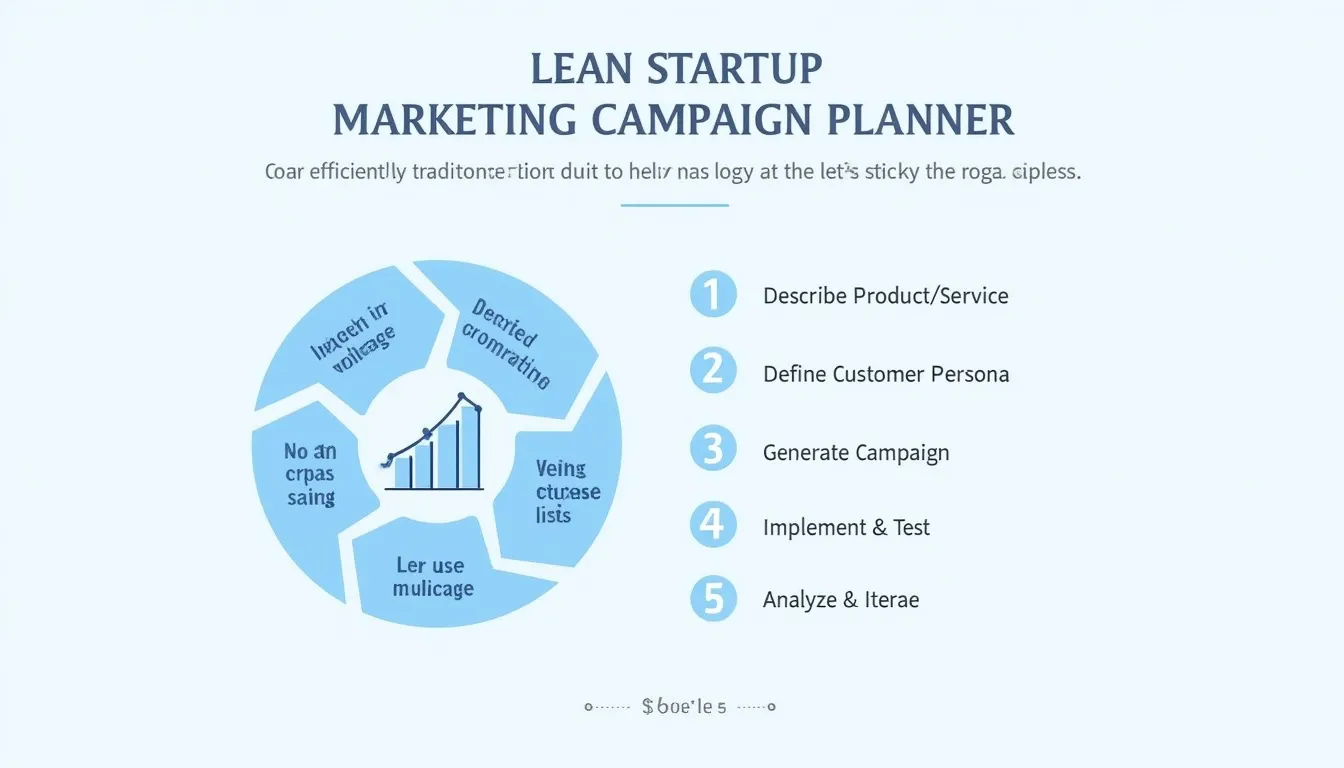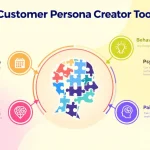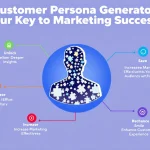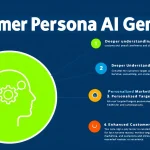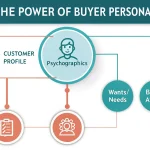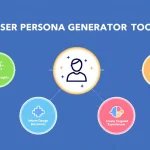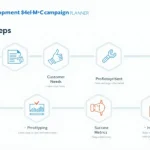Is this tool helpful?
How to Use the Lean Startup Marketing Campaign Generator Effectively
To make the most of this powerful Lean Startup Marketing Campaign Generator, follow these simple steps:
- Describe your product or service: In the first text area, provide a comprehensive overview of your product or service. Be as detailed as possible, including its key features, benefits, and unique selling points. For example: “Our product is a mobile app called ‘FitTrack Pro’ that helps users set, track, and achieve their fitness goals. It offers personalized workout plans, nutrition tracking, progress visualization, and integration with popular fitness wearables.”
- Define your ideal customer persona: In the second text area, describe your target audience in detail. Include demographics, behaviors, needs, and pain points. For instance: “Our ideal customer is a health-conscious young professional aged 25-35, living in urban areas. They are tech-savvy, time-constrained, and looking for efficient ways to maintain their fitness. They value data-driven insights and are willing to invest in their health and well-being.”
- Submit your information: Once you’ve filled in both fields, click the “Submit” button to generate your Lean Startup marketing campaign outline.
- Review the results: The generator will provide a comprehensive marketing campaign strategy based on the Lean Startup Methodology. This will include steps for rapid experimentation, customer feedback gathering, and iterative improvements.
- Copy and implement: Use the “Copy to Clipboard” button to save the generated strategy and begin implementing it in your marketing efforts.
Understanding the Lean Startup Marketing Campaign Generator
The Lean Startup Marketing Campaign Generator is an innovative tool designed to help entrepreneurs and marketers create data-driven, customer-centric marketing strategies. By leveraging the principles of the Lean Startup Methodology, this tool enables businesses to rapidly test and refine their marketing approaches, ensuring maximum efficiency and effectiveness in their campaigns.
What is the Lean Startup Methodology?
The Lean Startup Methodology, popularized by Eric Ries, is a scientific approach to creating and managing startups, emphasizing rapid experimentation, customer feedback, and iterative product development. When applied to marketing, this methodology helps businesses:
- Validate marketing assumptions quickly
- Minimize wasted resources on ineffective strategies
- Adapt to market changes and customer needs in real-time
- Achieve product-market fit faster
- Scale marketing efforts more efficiently
The Purpose of the Lean Startup Marketing Campaign Generator
This tool serves as a bridge between the Lean Startup principles and practical marketing execution. Its primary purposes are:
- To provide a structured framework for applying Lean Startup concepts to marketing campaigns
- To help businesses identify and prioritize key marketing experiments
- To encourage data-driven decision-making in marketing strategy development
- To facilitate rapid iteration and improvement of marketing tactics
- To align marketing efforts with customer needs and preferences
Benefits of Using the Lean Startup Marketing Campaign Generator
1. Time and Resource Efficiency
By utilizing this tool, businesses can significantly reduce the time and resources spent on developing marketing campaigns. The generator provides a ready-to-use framework, eliminating the need for extensive research and planning from scratch. This efficiency allows teams to focus more on execution and analysis, leading to faster results and improvements.
2. Customer-Centric Approach
The Lean Startup Marketing Campaign Generator places a strong emphasis on understanding and addressing customer needs. By requiring detailed information about the ideal customer persona, it ensures that all marketing efforts are tailored to the target audience’s preferences, pain points, and behaviors. This customer-centric approach increases the likelihood of campaign success and customer engagement.
3. Data-Driven Decision Making
The generated marketing campaign outline encourages businesses to make decisions based on real data and customer feedback rather than assumptions or gut feelings. This data-driven approach leads to more effective marketing strategies and helps businesses avoid costly mistakes based on untested hypotheses.
4. Flexibility and Adaptability
The Lean Startup methodology emphasizes rapid experimentation and iteration. By following the generated campaign outline, businesses can quickly adapt their marketing strategies based on real-world results. This flexibility allows for continuous improvement and ensures that marketing efforts remain relevant in rapidly changing market conditions.
5. Scalability
As businesses validate their marketing assumptions and refine their strategies using the Lean Startup approach, they create a solid foundation for scaling their efforts. The insights gained through this process can be applied to larger campaigns and new market segments, facilitating sustainable growth.
Addressing User Needs and Solving Specific Problems
The Lean Startup Marketing Campaign Generator addresses several key challenges faced by marketers and entrepreneurs:
1. Overcoming Analysis Paralysis
Many businesses struggle with the overwhelming number of marketing options and strategies available. This tool provides a clear, actionable framework that helps marketers overcome analysis paralysis and start taking concrete steps towards effective campaigns.
2. Minimizing Wasted Resources
Traditional marketing campaigns often involve significant upfront investments without guaranteed returns. The Lean Startup approach minimizes this risk by encouraging small-scale experiments and iterative improvements. For example, instead of investing $50,000 in a full-scale product launch campaign, a business might start with a $5,000 social media experiment to validate key assumptions about customer preferences.
3. Aligning Product Development with Market Needs
The tool’s emphasis on customer feedback and rapid iteration helps businesses ensure that their products or services align closely with market needs. This alignment can significantly increase the chances of success and reduce the risk of developing products that don’t resonate with the target audience.
4. Accelerating Time-to-Market
By providing a structured approach to marketing experimentation, the generator helps businesses move faster from concept to market. This acceleration can be crucial in competitive industries where being first-to-market can provide a significant advantage.
5. Improving Marketing ROI
The data-driven nature of the Lean Startup methodology helps businesses optimize their marketing spend. By continuously measuring and improving campaign performance, companies can achieve a higher return on investment (ROI) for their marketing efforts.
Practical Applications and Use Cases
1. Product Launch Campaign
Consider a startup launching a new productivity app. Using the Lean Startup Marketing Campaign Generator, they might develop a strategy that includes:
- Creating a landing page to test different value propositions
- Running small-scale social media ad campaigns to gauge interest in various features
- Conducting user interviews to refine the product messaging
- Iterating on the app’s onboarding process based on early user feedback
By following this approach, the startup can refine its marketing message and product features before investing in a full-scale launch, increasing the chances of success and minimizing wasted resources.
2. Market Expansion Strategy
A successful local business looking to expand into new markets could use the generator to create a Lean Startup-inspired expansion strategy. This might involve:
- Identifying key assumptions about the new market
- Designing small-scale experiments to test these assumptions
- Creating localized landing pages to test messaging in different regions
- Running limited-time promotions to gauge demand in new areas
- Iterating on the product or service offering based on regional feedback
This approach allows the business to validate its expansion strategy with minimal risk before committing significant resources to new markets.
3. Rebranding Campaign
A company undergoing a rebranding process could leverage the Lean Startup Marketing Campaign Generator to test and refine its new brand identity. The strategy might include:
- A/B testing different logo designs and brand colors on social media
- Running focus groups to gather feedback on new brand messaging
- Soft-launching the new brand to a segment of loyal customers for early feedback
- Iterating on the brand voice and visual elements based on customer responses
This iterative approach ensures that the rebranding effort resonates with the target audience before a full-scale rollout.
4. Content Marketing Strategy
A B2B software company looking to improve its content marketing efforts could use the generator to develop a data-driven content strategy:
- Creating multiple content pillars and testing engagement across different channels
- Experimenting with various content formats (blog posts, videos, infographics) to identify preferences
- Using A/B testing on email subject lines and content to optimize open and click-through rates
- Gathering feedback through surveys and comments to refine content topics and depth
This approach allows the company to continuously improve its content marketing efforts based on real audience data and preferences.
Frequently Asked Questions (FAQ)
Q1: How long does it take to see results from a Lean Startup marketing campaign?
A1: The timeline for seeing results can vary depending on the nature of your product, market, and experiments. However, one of the key advantages of the Lean Startup approach is its emphasis on rapid experimentation. You should start gathering valuable data and insights within weeks, if not days, of implementing your first experiments. These early results will guide your subsequent iterations and improvements.
Q2: Can the Lean Startup methodology be applied to established businesses, or is it only for startups?
A2: While the Lean Startup methodology was originally developed with startups in mind, its principles can be effectively applied to businesses of all sizes and stages. Established companies can use this approach to launch new products, enter new markets, or optimize existing marketing strategies. The key is to adopt a mindset of continuous experimentation and improvement.
Q3: How do I determine the right size for my marketing experiments?
A3: The ideal size for your experiments will depend on your specific circumstances, including your budget, timeline, and the nature of your product or service. Generally, start with the smallest scale that can provide meaningful data. This might mean running a social media ad campaign with a budget of a few hundred dollars or conducting interviews with a dozen potential customers. As you gain confidence in your assumptions, you can gradually increase the scale of your experiments.
Q4: What metrics should I focus on when evaluating my Lean Startup marketing experiments?
A4: The specific metrics you should track will depend on your goals and the nature of your experiments. However, some common metrics to consider include:
- Customer Acquisition Cost (CAC)
- Conversion rates at various stages of the funnel
- Customer Lifetime Value (CLV)
- Engagement rates (e.g., click-through rates, time on site)
- Net Promoter Score (NPS) or other customer satisfaction metrics
Q5: How often should I iterate on my marketing strategy?
A5: The frequency of iteration will depend on the results of your experiments and the pace of change in your market. As a general rule, aim to review and potentially iterate on your strategy every few weeks. This allows enough time to gather meaningful data while still maintaining the rapid pace that characterizes the Lean Startup approach. Remember, the goal is continuous improvement, so be prepared to make both small tweaks and larger pivots as your data dictates.
Q6: Can I use the Lean Startup Marketing Campaign Generator for multiple products or services?
A6: Absolutely! The Lean Startup methodology is versatile and can be applied to various products, services, and markets. You can use the generator multiple times, each time focusing on a different product or service. This allows you to create tailored marketing strategies for each offering while still benefiting from the Lean Startup principles of rapid experimentation and iteration.
Q7: How do I balance the need for experimentation with maintaining a consistent brand image?
A7: This is a common concern when implementing Lean Startup principles. The key is to define your core brand values and identity upfront, and then experiment within those parameters. Your experiments should focus on refining your messaging, testing different channels, and optimizing your value proposition – not on drastically changing your brand identity with each iteration. If your experiments consistently suggest that your brand identity isn’t resonating with your target audience, that might indicate a need for a more comprehensive rebranding effort.
Q8: What if my experiments consistently fail to produce positive results?
A8: Consistent “failures” in your experiments are actually valuable data points. They indicate that your current assumptions about your product, market, or customer needs may be incorrect. This is a signal to step back and reassess your fundamental hypotheses. You might need to pivot your product offering, target a different market segment, or redefine your value proposition. Remember, the goal of the Lean Startup methodology is to learn and adapt quickly – “failing” experiments that provide clear insights are often more valuable than inconclusive “successes”.
Q9: How can I ensure that I’m gathering accurate and actionable feedback from customers?
A9: To gather high-quality customer feedback:
- Use a mix of quantitative (e.g., surveys, analytics) and qualitative (e.g., interviews, focus groups) methods
- Ask specific, actionable questions rather than general ones
- Pay attention to what customers do, not just what they say
- Seek feedback from a diverse range of customers, not just your most enthusiastic ones
- Use tools like customer journey mapping to identify key touchpoints for gathering feedback
Q10: How does the Lean Startup approach differ from traditional marketing planning?
A10: The Lean Startup approach differs from traditional marketing planning in several key ways:
- It emphasizes rapid experimentation over extensive upfront planning
- It prioritizes customer feedback and data over assumptions or historical trends
- It encourages frequent iterations and pivots rather than sticking to a fixed long-term plan
- It focuses on validating key hypotheses before scaling marketing efforts
- It promotes a more agile and responsive approach to market changes
Important Disclaimer
The calculations, results, and content provided by our tools are not guaranteed to be accurate, complete, or reliable. Users are responsible for verifying and interpreting the results. Our content and tools may contain errors, biases, or inconsistencies. We reserve the right to save inputs and outputs from our tools for the purposes of error debugging, bias identification, and performance improvement. External companies providing AI models used in our tools may also save and process data in accordance with their own policies. By using our tools, you consent to this data collection and processing. We reserve the right to limit the usage of our tools based on current usability factors. By using our tools, you acknowledge that you have read, understood, and agreed to this disclaimer. You accept the inherent risks and limitations associated with the use of our tools and services.
